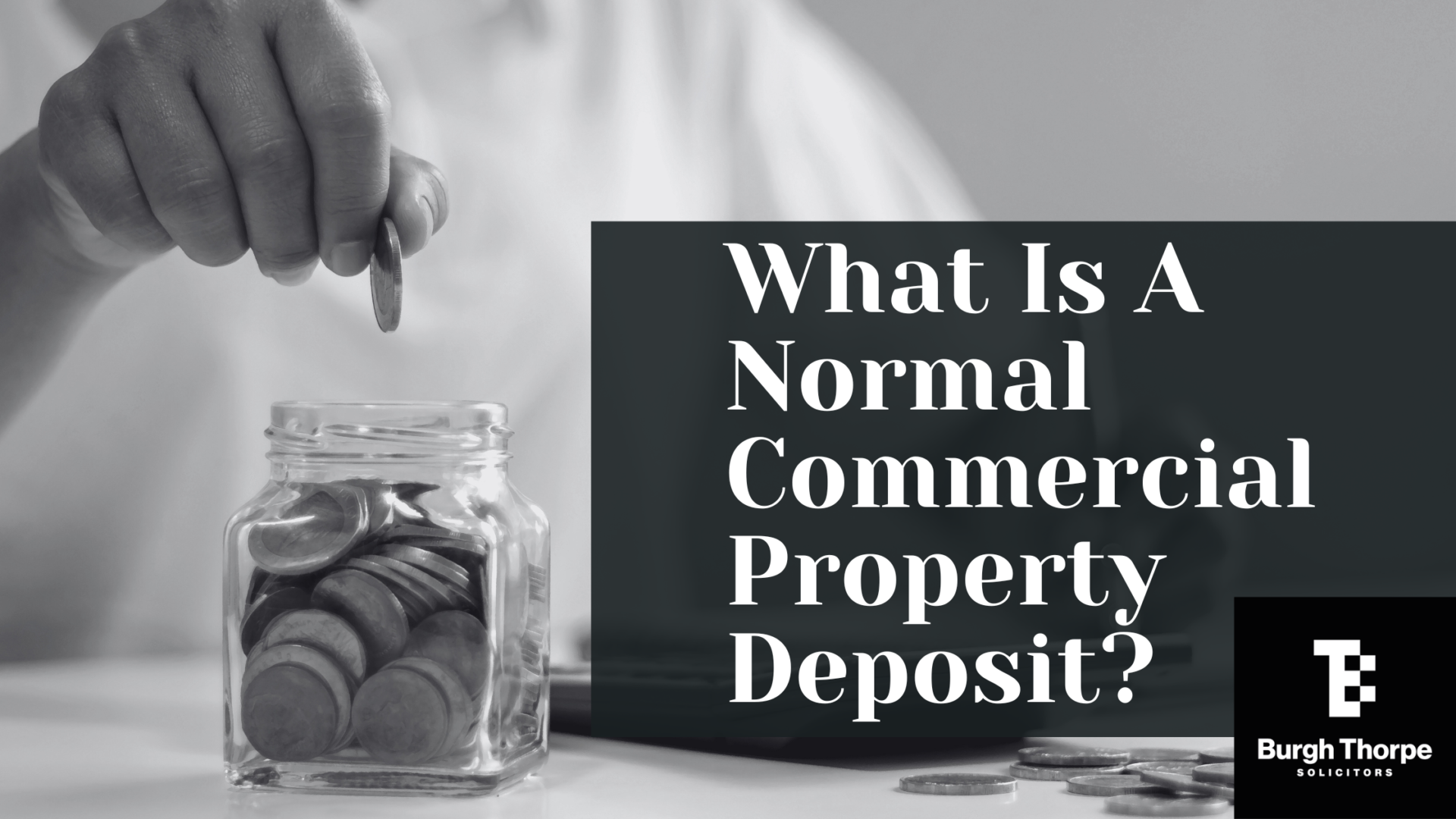What Is A Normal Commercial Property Deposit?
Commercial Property Law Posted 4 November 2024Paying a deposit is normal when it comes to property law and property contracts. However, a deposit is sometimes more than just a deposit. It is sometimes a lot less than a deposit too. For example, a deposit will often act as a security for the seller. It will often be part of the overall purchase price paid when contracts are exchanged too. In this blog post we look at what a normal commercial property deposit is and why you might want to pay a larger deposit on your commercial property.
The Normal Commercial Property Deposit
Generally speaking, a normal deposit for a property is 10% of the purchase price. This will usually be quite a substantial amount. The deposit is then paid to the seller on the exchange of contracts. It is given as partial payment of towards the overall price of the purchase.
If a seller requests a deposit that is over 10% you need to be cautious. This is because it may not be legally enforceable. This kind of request could be seen as a penalty on the buyer. Therefore, it may not hold up in court. If there is a request for a deposit of more than 10% it is highly recommended that you speak to our property lawyers. We can carefully review and question the request on your behalf.
Why Sellers Want Bigger Deposits
There are times when sellers prefer bigger deposits. This is especially the case during uncertain times such as covid, or the current cost-of-living crisis for example. Sometimes sellers will request a higher deposit to ensure that the buyer is serious and well-prepared for the purchase of the commercial property. While this request may be deemed as reasonable, it could be deemed as a contractual penalty and void.
Bigger Deposits Can Void A Contractual Agreement
A deposit that is disproportionately high with regards to the purchase price could be considered a contractual penalty. Therefore, it could be voided by a court. A deposit that is non-refundable, regardless of the buyer’s reasons for choosing not to purchase the property, may be considered a penalty. Therefore, they could also be voided. Any terms that attempt to limit the legal rights or protections of the buyer could also be deemed unenforceable by a court. This includes requiring the buyer to pay a penalty for cancelling the deal or not allowing the buyer to obtain an inspection for the commercial property.
If you are purchasing a commercial property, speak to our commercial conveyancing lawyers. They can help you get through muddy wars and ensure that you and your commercial property are protected.
